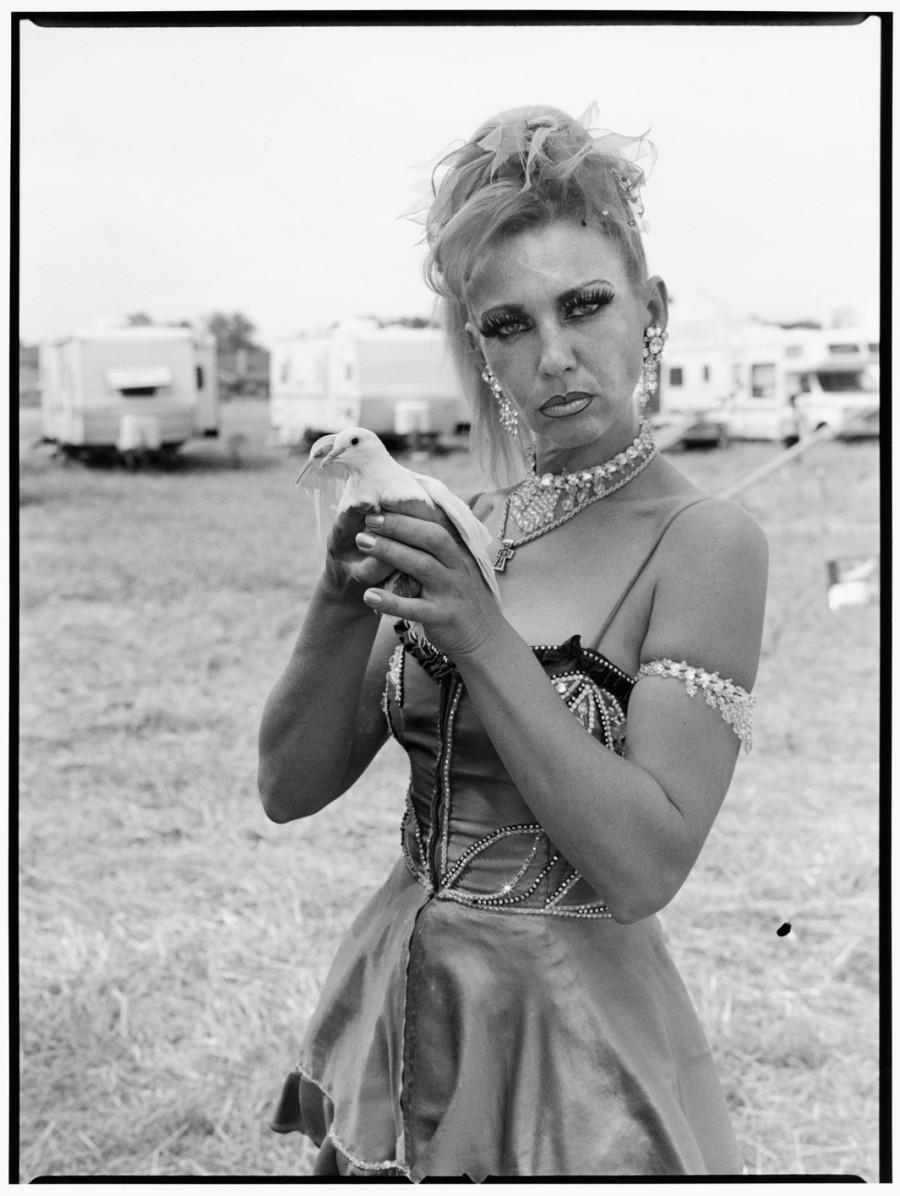This post originally appeared on Slate.
By Jordan G. Teicher
![womb]()
Some children dream of running away and joining the circus, Norma I. Quintana dreamed of photographing it.
In 1999, Circus Chimera, a one-ring operation, came to Napa, California, where Quintana lives.* Initially, she thought she’d only photograph the Oklahoma-based group for a few days. But after becoming “totally seduced by the circus world,” she devoted nearly a decade of her life to it.
“If I could drive to see them, I’d spend a couple of nights. I dreamt of having my own trailer, but usually I’d leave when the lights would go down. I did it even when my kids were little. My family thought I’d lost my mind,” she said.
The circus performers were initially hard to photograph because “they immediately act.” It took a while for her to depict the performers more candidly. While Quintana was attracted to the theatrical elements of the circus, the black-and-white photos in her book Circus: A Traveling Life, which was published by Damiani in September, ultimately show the normality of the circus beyond the spectacle—one very much dominated by family life.
“The performers go to the store like everyone else. They do their laundry like everyone else. But for a few hours every day they dress up, put on a lot of makeup, and do these amazing things. One mother would come to the tent with her strollers, do a trapeze act, get her child, and go back to the trailer. That was fascinating for me to see,” she said.
According to the Valley Morning Star, Circus Chimera closed in 2007 after changes in the United States’ temporary work visa program made it impossible for Jim Judkins, the group’s founder, to secure visas for any of his workers, who all came to work seasonally from outside the country.
Quintana photographed the circus until the very end. And while she was sad to see Circus Chimera close, her images don’t possess a mournful or dreary perspective. Many of Quintana’s subjects have stayed in touch with her, and give her regular updates about their jobs with other circuses. Her photos of Circus Chimera, she said, are celebratory, capturing a world that was very much full of life while it was in operation.
“I wanted to provide more of a human side to it—a sense of family and tradition and culture and love of performance.”
See more photos on Slate.
By Jordan G. Teicher

Some children dream of running away and joining the circus, Norma I. Quintana dreamed of photographing it.
In 1999, Circus Chimera, a one-ring operation, came to Napa, California, where Quintana lives.* Initially, she thought she’d only photograph the Oklahoma-based group for a few days. But after becoming “totally seduced by the circus world,” she devoted nearly a decade of her life to it.
“If I could drive to see them, I’d spend a couple of nights. I dreamt of having my own trailer, but usually I’d leave when the lights would go down. I did it even when my kids were little. My family thought I’d lost my mind,” she said.
The circus performers were initially hard to photograph because “they immediately act.” It took a while for her to depict the performers more candidly. While Quintana was attracted to the theatrical elements of the circus, the black-and-white photos in her book Circus: A Traveling Life, which was published by Damiani in September, ultimately show the normality of the circus beyond the spectacle—one very much dominated by family life.
“The performers go to the store like everyone else. They do their laundry like everyone else. But for a few hours every day they dress up, put on a lot of makeup, and do these amazing things. One mother would come to the tent with her strollers, do a trapeze act, get her child, and go back to the trailer. That was fascinating for me to see,” she said.
According to the Valley Morning Star, Circus Chimera closed in 2007 after changes in the United States’ temporary work visa program made it impossible for Jim Judkins, the group’s founder, to secure visas for any of his workers, who all came to work seasonally from outside the country.
Quintana photographed the circus until the very end. And while she was sad to see Circus Chimera close, her images don’t possess a mournful or dreary perspective. Many of Quintana’s subjects have stayed in touch with her, and give her regular updates about their jobs with other circuses. Her photos of Circus Chimera, she said, are celebratory, capturing a world that was very much full of life while it was in operation.
“I wanted to provide more of a human side to it—a sense of family and tradition and culture and love of performance.”
See more photos on Slate.